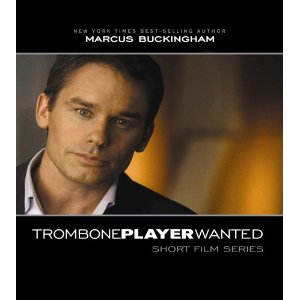It is quite common for professors to tell students to be well rounded. This well–intentioned advice is misguided.
I am going to argue that instead of being well-rounded, like an orange, you should strive to be deep like a carrot.
Shouldn’t I Be Well Rounded?
Yes and No. While it is true that a liberal arts education provides a stronger foundation from which to think and reason, educators tend to misapply the principle by taking it too far. The argument is often used to chastise children for low grades in subjects where they have little aptitude. We are all equal before God, but God has granted each of us different skills and abilities.
For example, I enjoy reading and I like to write, but I would rather leave accounting to someone else. The good news is that THAT IS OK.
I do not have to do everything equally well in order to get ahead in the world. Being well rounded—being equally proficient in math, writing, speaking, athletics, science, and foreign languages—is a pipe dream. The ideal of a Renaissance man is impressive precisely because such a man is uncommon.

More importantly, the evidence shows that this approach is a poor strategy for success. The time that I spend ensuring basic competence in an area in which I struggle might be better spent becoming an expert in an area where I have natural aptitude. Greatness comes from depth in a particular area, not being average in all areas.
The principle of comparative advantage suggests that I should do the thing I do best and you should do the thing you do best. Then we trade and everyone is better off. Rather than struggle through the most difficult tasks, comparative advantage frees us to spend our energy on things we do well.
More to the point, humans only tend to do well in endeavors that they enjoy and these are usually areas where they have some natural ability.
“If you don’t have a competitive advantage, don’t compete.”
– Jack Welch
How the World Really Works
 Remember the principle of comparative advantage? In the real world, people are valuable when they have deep expertise and enough general knowledge to provide useful application of that deep knowledge.
Remember the principle of comparative advantage? In the real world, people are valuable when they have deep expertise and enough general knowledge to provide useful application of that deep knowledge.
Experts know a little about a lot and a lot about a little.
You will need to follow this strategy if you are to give your best at work. Moreover, it is liberating to know that you do not to have to do everything well. Most people are simply not capable of such demands.
My Advice
Be a carrot, not an orange. Forget being well rounded. If you want to be a success, determine your strengths and grow deep.
How To Determine Your Strengths
Marcus Buckingham has written a number of books that teach people how to recognize their strengths. His books include:
- First Break all the Rules
- Now Discover your Strengths
- The One Thing You Need to Know…about Great Managing, Great Leading, and Sustained Individual Success
- Go Put Your Strengths To Work: 6 Powerful Steps to Achieve Outstanding Performance
- The Truth About You: Your Secret to Success
- Finding your Strongest Life What the Happiest and Most Successful Women Do Differently
- StandOut: The Groundbreaking New Strengths Assessment from the Leader of the Strengths Revolution
 I can heartily recommend all of these books, but the message was most clearly explained in his video series entitled Trombone Player Wanted . I have used this video in class because it drives the message that you will excel when you find your calling and offer that to the world (highly recommended).
I can heartily recommend all of these books, but the message was most clearly explained in his video series entitled Trombone Player Wanted . I have used this video in class because it drives the message that you will excel when you find your calling and offer that to the world (highly recommended).
So what about you? Are you an orange or a carrot? If you are an orange, how can you become more like a carrot?
Darin Gerdes, Ph. D.
_______________
Dr. Gerdes is the Director of the MBA Program at Charleston Southern University. All ideas expressed on www.daringerdes.com are his own.
Note: If you purchase Standout, please be sure to purchase a new copy. The book comes with a strengths test and a code to take the test which may have been used in a used copy.

